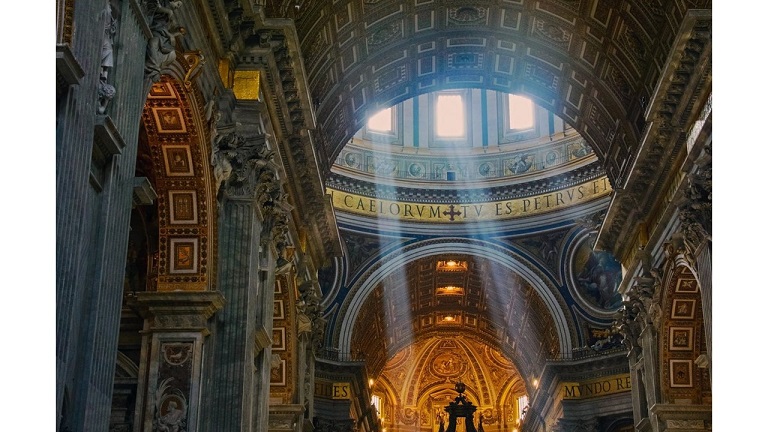.
Disambiguation
As in the dawn the nature of the beams
Of light invading chambers—how they glint,
Conceal with shade, or paint with rosy tint—
Reveals the day, not as it is but seems,
So, in the natal cradle of our dreams,
From the beloved’s eye we aim to mint
A wealth of useful knowledge, sign and hint,
And draw our own conclusions from its gleams.
__Though in the morn the outlook of the day
___May soon beyond a doubt be ascertained
____By boldly drawing back the veiling curtain,
__Where feelings are concerned, some of us may
___So dread the risk of being dashed and pained
____We find it better not to know for certain.
.
.
Ode to Opacity
Discretion rests on your expansive shores,
Indulging in their refuge, which belies
Suspicion and blind confidence restores.
So like you to disguise your very guise
In semblance of a bright transparency;
Misleading all, and yet deceiving none
Unless omission be deemed sophistry.
Let the unspoken seem as if undone,
And under veils of vague consistency
The truth be kept untarnished – though unwon.
In gentle ruse, with understated style
Or dazzling splash of inapparent wile,
Never need you expose your subtle guile.
.
.
A Pennsylvania native now residing in Colorado, Anna J. Arredondo is an engineer by education, a home educator by choice, and by preference, a poet. She also has poems published in Light, The Lyric, and Time of Singing.
















I was admiring your “Opacity” poem so appreciatively, and puzzling so intently over its intriguing 13-line structure – paying close attention to the end rhymes and their pleasing pattern on the poem’s right edge – that I almost completely overlooked the bold-faced word glaring up at me from the left edge. How fitting.
Thank you for making me smile and think in the midst of this world’s dissimulation.
Jack,
Thank you for your kind comment. I am glad that the poem’s acrostic-ness was not the first thing you noticed!
I also owe you a thank you for making me smile and think. Though I didn’t leave a comment, I very much enjoyed your “There was a Free Nation” song, and forwarded it along to some of my freedom-loving friends. 🙂
Anna, I can imagine Petrarch having written “Disambiguation.” You’re treating a theme he would like, in the sonnet form named for him. The style and thought structure are your own, and very well done from my point of view. The acrostic “ode’ is still more clever–you’ve managed to present the topic of opacity in discourse that is mostly clear! I regard this as successful; you don’t have to descend to obscurity to describe it.
I’m answering here your question to Olga Dumer about how to find poems to translate. Olga is quite right to say, “Translate what you like.” I’ll add that you should like the poem enough to be its author in English, because a translator takes on the task of creating a new English poem. The translation represents your original work as a poet, as well as the thought and artistry of the original author.
But how to find poems you like? I started by going to a library and browsing the stacks. You can do this on Internet Archive, or one of the other sites that has books to read for free. I just tried searching for “Spanish Poetry Anthology” on the Archive, and came up with 173 results. An anthology is a good place to start, because you can discover what poets or time periods you prefer. Then you can look for further books that may have more of what you want. Some anthologies are bilingual, enabling you to use the English translations (often in prose) to make choices more quickly.
To avoid any copyright difficulties, stick to poets who have been dead 100 years or more. And remember that editors also have copyright on their work, so take your Spanish originals from books published at least 100 years ago. You can find the poem in a newer edition, but when you decide on publishing your translation, take the original from an out-of-copyright edition. Many nineteenth-century editions are available in photo reprints. Whatever edition you use, it will make your work much easier if there is a glossary explaining the author’s unusual or obsolete words, and telling you what is meant by proper names of forgotten persons or places. Best wishes!
Margaret,
Thank you for your generous feedback on my poems!
Also, many many thanks for taking the time to hop over here and answer my question about poems to translate. I appreciate your detailed explanation, and will soon avail myself of the information you have so thoughtfully provided. This was the answer I was hoping for!